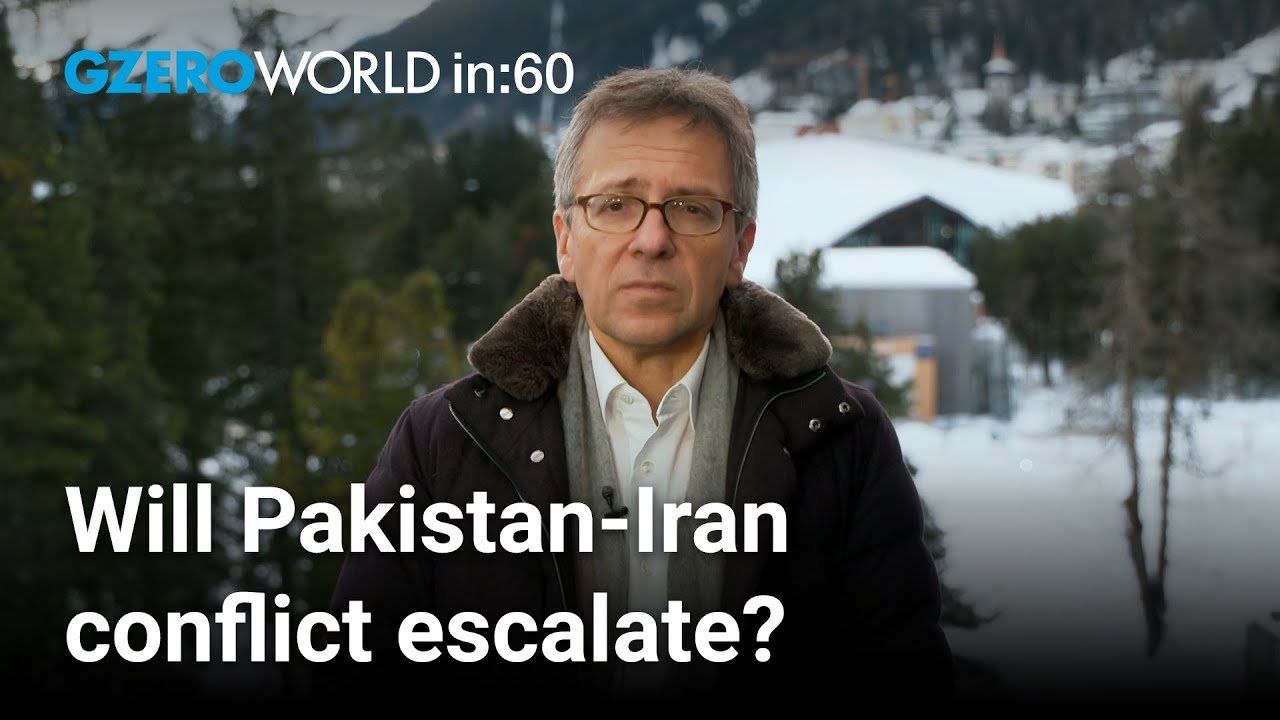
Ian Bremmer shares his insights on global politics this week from Davos on World In :60.
How was White House National Security Adviser Jake Sullivan’s statement on a two state solution received in Davos?
Well, I mean, people like the idea of a two-state solution. They have absolutely no idea how to get there. And even if you say you could link it to Saudi normalization with Israel, by the way, the Israelis still want, and behind the scenes the Saudis still want. You still have to find a way to govern Palestine, both Gaza and the West Bank. And we are very, very far, I should say Israel is very, very far from having that as a possibility. So are the Palestinians.
Could the attacks between Pakistan and Iran ignite into a bigger conflict?
Yes, it absolutely could, but has almost nothing to do with Gaza. It was that ISIS attack in Iran that the Iranians are responding to. This is about domestic security, domestic concerns. That's why they hit Pakistan. That's why Pakistan hit them back. But no question, this is a tinderbox. The Middle East, it's very dry and we've got a lot of sparks. And I expect that this conflict is only going to escalate further.
Finally, what should we expect from the Ukraine peace summit to be held in Geneva?
Well, not very much, because the Russians won't participate. And President Putin has absolutely no incentive to give anything. The reason he's talking about diplomacy right now is because he's hoping to shake a few Europeans free and say, yeah, yeah, you should talk. You should sit down with them. It's making it easier to create a wedge inside Europe, especially once Trump gets the Republican nomination, who is clearly on that side. But we are very, very far from peace. In fact, we've got the Ukrainians right now on the back foot and deeply, deeply dissatisfied with it.